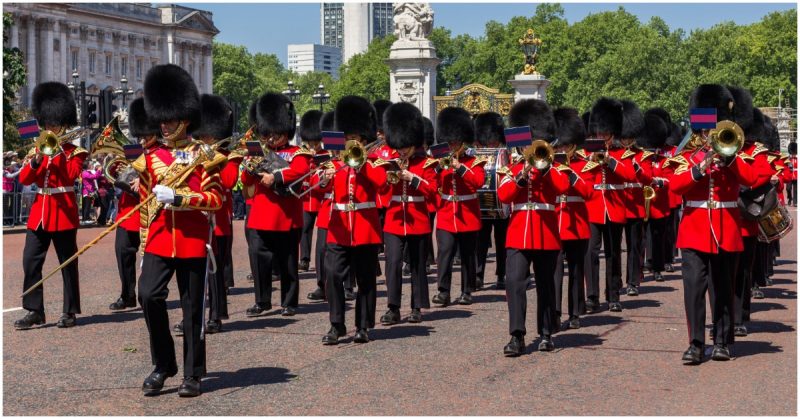In 1862, Congress passed a bill to increase the number of musicians recruited for military bands and soon it became normal for each regiment to be accompanied by a band.
Military bands represent one of the great military traditions across the world and have played an important role in the military for thousands of years. But as budgets are cut in so many areas, including defense, questions are being asked about whether the spending on military bands can be justified.
The US spends around $260 million per year funding military bands. This includes training, equipment, and many other things including salaries. The US army employs more musician than any other organization in the country.
The UK has also invested in musicians for many years with a history of organized military music going back at least to the 16th century. However, the UK government recently began looking for ways to save money on their defense budget, and it wasn’t long before the spending on military bands came under scrutiny.
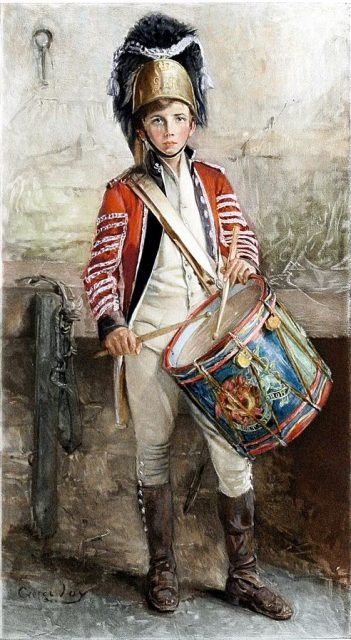
Many other countries fund military music for a range of functions, but as public spending increasingly needs to be justified you might be wondering: what is the point of a military band?
Long tradition
The tradition of military music goes right back to the ancient world. Their functions were both practical and aesthetic.
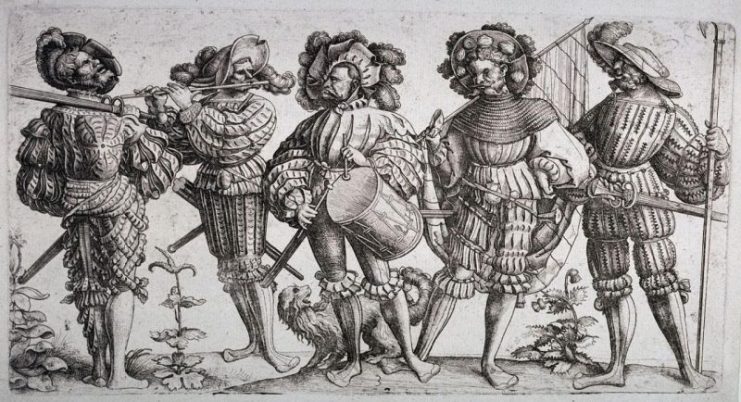
On the one hand, the instruments were a way of signaling, calling to battle, and communicating across the battlefield. The instruments had to be loud, so a variety of simple horns and drums were most often employed. Musical instruments, especially drums, were also used to keep rowers in a steady rhythm.
But on the other hand, music was also employed to create an uplifting mood among the troops, as well as to inspire the men and to improve morale.
Bands of the Civil War
Many military bands accompanied soldiers onto the field during the American Civil War. Their presence was considered a great bonus and was often used as a way of helping with recruitment. The prospect of being accompanied by a good band made the regiment more popular with volunteers.
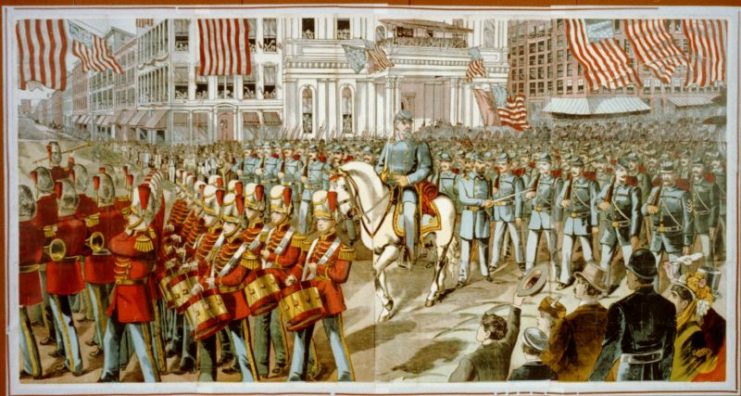
In 1862, Congress passed a bill to increase the number of musicians to be recruited for the military bands and soon it became normal for each regiment to be accompanied by a band. Following the bill, a typical brass band might have as many as 50 members, almost twice as many as previously.
The downside of this profusion of music was that when regiments were camped close to each other, the military bands were all playing different tunes which must have produced a less than musical effect.
However, the situation did not last for long. There were concerns that the bands, especially the larger ones, were filling up with members who provided minimal support to their regiments. The bands seemed to be attracting “musicians” will little or no musical skill who were only interested in the possibility of receiving a soldiers wage alongside the knowledge that they were unlikely to be involved in full-scale combat.
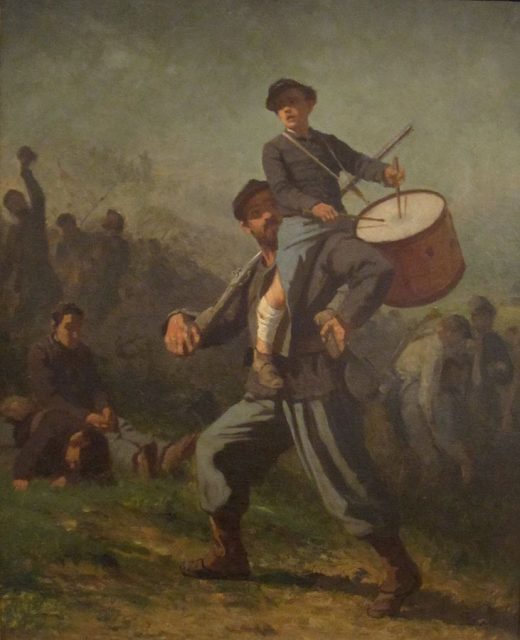
But joining a band was not a soft option. Although the bandsmen were not involved in direct combat, they still put their lives at risk, and many were lost in the course of the war. As well as being in the band, these men often performed ambulance duties which was a common way of making use of them when they were not playing.
Circumstances also contributed to the demise of the Civil War Bands. The prospect of an invasion by Lee and his troops made it necessary for the North to refocus its priorities. As a result, many of the bands were disbanded with their members opting to be sent home rather than deployed to other units.
Second World War
During the Second World War, there were around 500 bands involved in supporting the war effort one way or another. Their duties included entertaining the troops as well as performing guard duties at military posts and on supply trains. They also continued the tradition of acting as stretcher bearers when they were not playing.
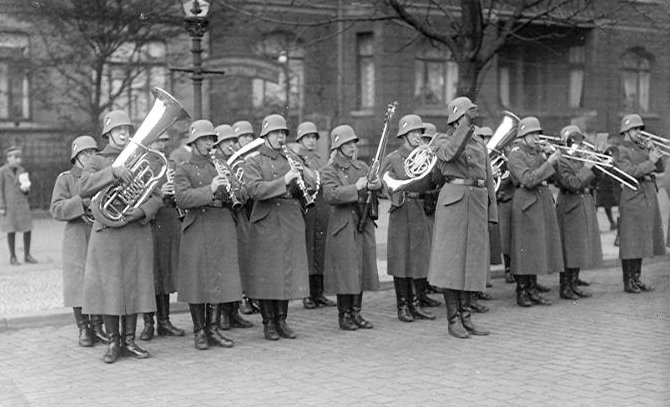
All band members had to undertake military training so they were ready to fight when called upon. At times, this had to take priority over their musical duties.
During the Battle of the Bulge from December 1944 to January 1945, when the Germans launched a surprise attack at Ardennes, members of the 28th Infantry Division Band were called into full military action. They swapped their musical instruments for guns and took part in the ongoing battle.
Losses were heavy for the band, and only 16 survived the battle.
The Present Day
Today, most of the playing takes place off the battlefield. But the musicians still receive basic training and need to be prepared for the possibility of being called to fight if required.
Although for many people the idea of a military band usually conjures up images of marching bands or pipes and drums, today a band’s repertoire is incredibly varied. They have diversified into many different styles so that there is a band that can play for any occasion. The musicians are formed into different types of bands ranging from the more traditional military bands to pop and rock bands and even orchestral ensembles.
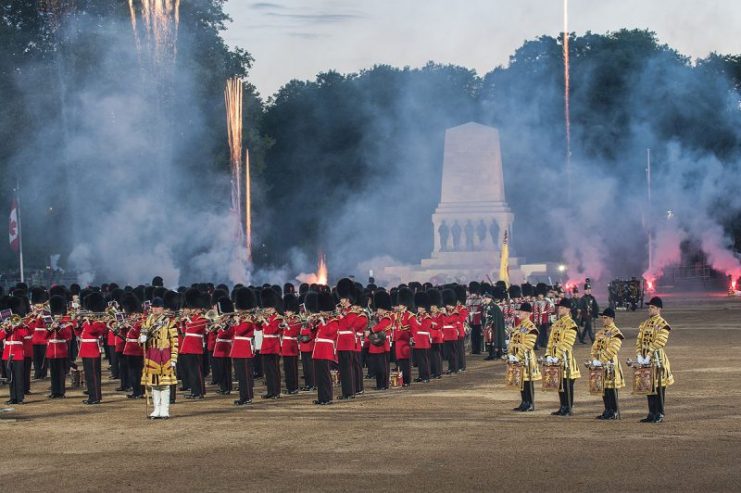
Much of their work is diplomatic and effectively PR for the military and their country. Military musicians are often called upon to play at important national public events or military funerals. They might be requested to play a national anthem to welcome visiting dignitaries, and it is considered a national embarrassment if they don’t make a good job of it.
Important role
Military bands have been described as an important link between the military and the public. As a result, a band’s performance can be a way of promoting the armed forces and can be an important part of the recruitment drive.
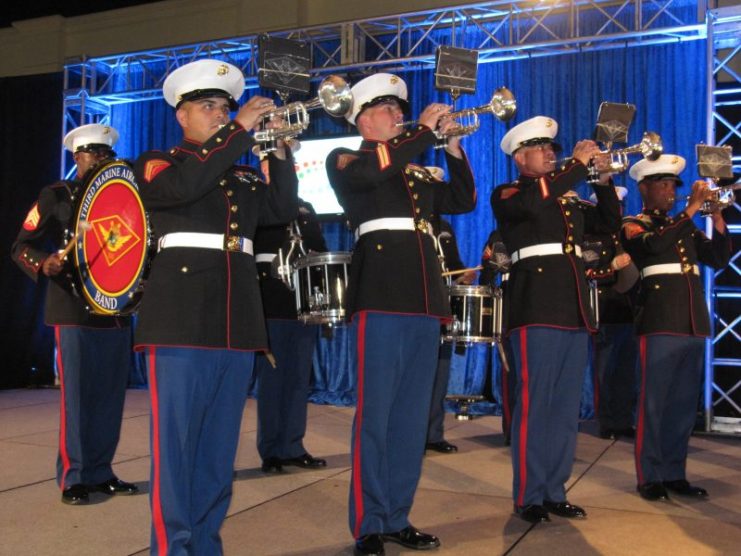
In the UK, bands play a role in training musician in the Commonwealth and beyond, which helps strengthen relations between those countries.
Playing at so many public events which are attended by civilians provides an opportunity to promote the forces in a way that engages directly with the public. Unless people have experience of the armed forces or perhaps have a friend or relative serving, the actual work of the military seems so removed from many people’s lives. But everyone can relate to music.
